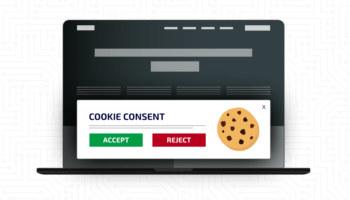“Google can’t index your intentions” – this, or something very similar to this, was said today by a co-worker and started me thinking about all the sites I’ve run across on the Internet (or had friends ask me to critique) which clearly have lofty aims but fall short of the mark. How do so many well-intended websites end up at the bottom of the search barrel?
Call this the second in my series of “SEO and Vision” articles. Before, I mentioned how having a clear strategy with your website, and writing every page with the intention of reinforcing that overall strategy, is key to building a successful website that has both relevance to the web user and the search engines. What I wrote about there was a very broad survey of SEO, internet marketing, and our holistic approach to site promotion. Today let me share some examples on how lack of vision can thwart a site’s objectives.
Imagine a small resort, nestled in a beautiful remote area of the world, which hopes that people searching for places to vacation will find them. Yet, this establishment can’t decide what it’s called – is it an inn or a bed and breakfast? Are their visitors going on a vacation, a holiday, or getaway? Is the lodging romantic, family-friendly, relaxing, or charming? Not having a clear understanding of the tremendous weight of keywords, the content writer throws all these words into the mix casually, often with little proofreading and almost certainly without criticism from a trained web copywriter. The designer is probably someone local, or even a friend, and the site meets the aesthetic standards of the business owner, meaning the site designer doesn’t second-guess taking the site live. Yet, years later (and rarely updated), the business owner can’t understand why his site fails to get top 10 rankings for the search he feels he should get results for.
Using the same business model above, you could have a website that doesn’t get the rankings the business deserves for completely different reasons. In this case, the business owner understands his limitations, and hires a graphic designer to build a website integrating hundreds of beautiful images he’s had professional photographers take over the years. The designer develops an extremely slick website, rich with photos of the establishment that completely bowls over everyone who views yet… Yet few people ever do. There are a few scattered paragraphs throughout the site (few of them mentioning beds, breakfast, inns, vacations, or romance), and all the links are embossed graphics. Despite a sophisticated coding interface (with dynamically loading frames and a virtual tour), the site falls hundreds of results behind web sites with barebones html and a few spare images.
In both examples, the failure of the website isn’t a lack of ambition on the business owner’s part, or good intentions by the designer–it’s a failure to communicate effectively. I think in general more of the population is beginning to understand the nature of websites, and that intuitively even amateur designers are building better websites, but the accessibility of easy web page tools and the desire to save some money has convinced people who’d never, say, remodel their house, to slap together a site that does a poor job of achieving their goals. As Maine web design site professionals, we have seen our share of these kinds of sites. And though amateurs might be able to make better-looking sites, the audience is more distracted then ever, impatient, and critical of web page flaws. Even with a number one ranking in Google, if your site has a broken submit form, you might be out thousands of dollars.
The Internet is a fascinating medium, with its unique integration of technical requirements with less left-brained disciplines. The stunning range of websites that combine form and function rise to the top, and their URLs quickly become household lingo—Google, YouTube, Amazon, eBay—and though many of us will never work on those megalithic sites, the examples set by the leaders can teach us all. Have something to say, or in the absence of something to say, have a whole lot of people visit you.
More next week.





